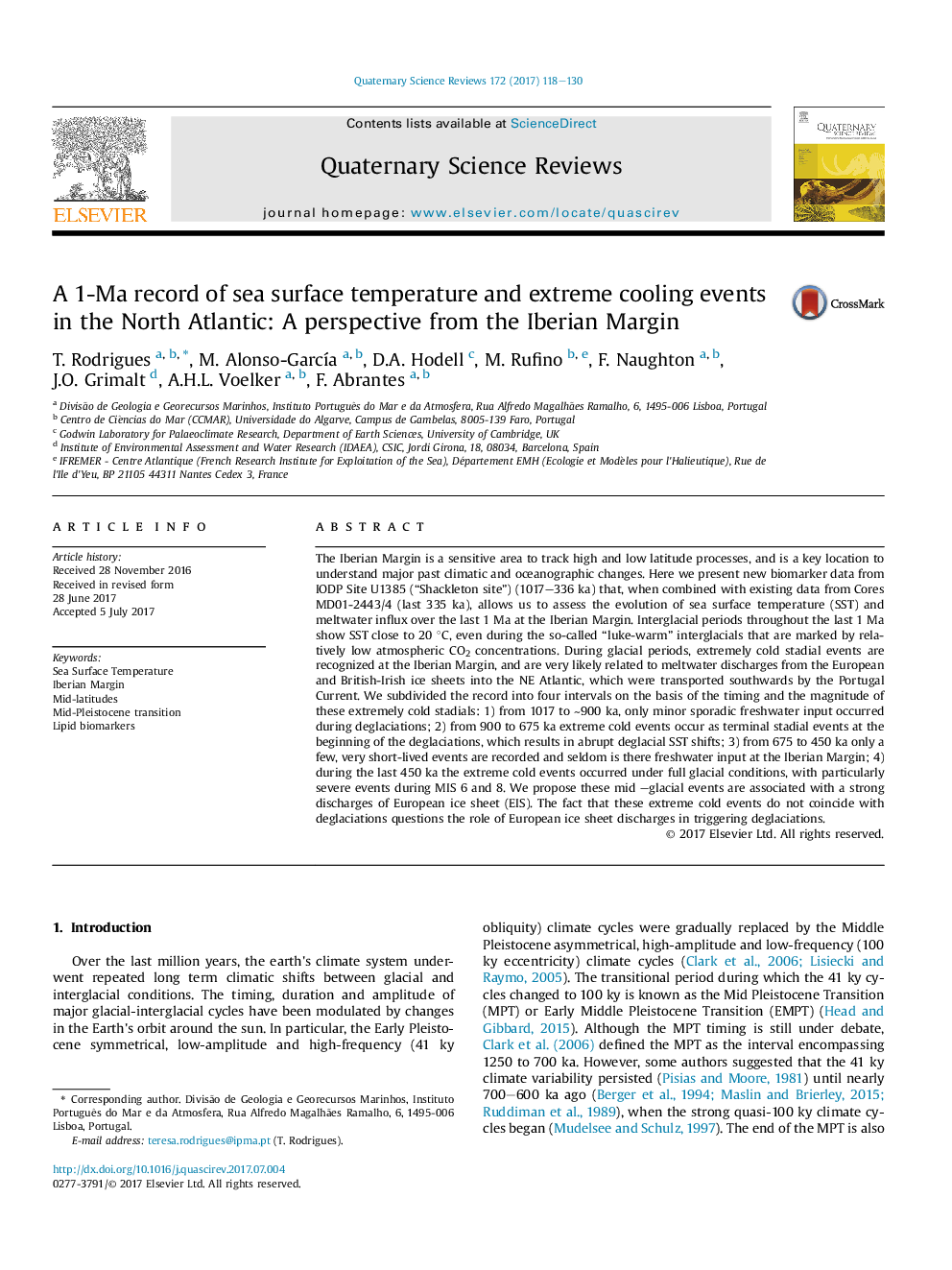| کد مقاله | کد نشریه | سال انتشار | مقاله انگلیسی | نسخه تمام متن |
|---|---|---|---|---|
| 5786555 | 1640763 | 2017 | 13 صفحه PDF | دانلود رایگان |
عنوان انگلیسی مقاله ISI
A 1-Ma record of sea surface temperature and extreme cooling events in the North Atlantic: A perspective from the Iberian Margin
ترجمه فارسی عنوان
یک رکورد 1 درجه ای از دمای سطح دریا و رویدادهای خنک کننده خنک در آتلانتیک شمالی: دیدگاه از حاشیه ایبرین
دانلود مقاله + سفارش ترجمه
دانلود مقاله ISI انگلیسی
رایگان برای ایرانیان
کلمات کلیدی
موضوعات مرتبط
مهندسی و علوم پایه
علوم زمین و سیارات
زمین شناسی
چکیده انگلیسی
The Iberian Margin is a sensitive area to track high and low latitude processes, and is a key location to understand major past climatic and oceanographic changes. Here we present new biomarker data from IODP Site U1385 (“Shackleton site”) (1017-336 ka) that, when combined with existing data from Cores MD01-2443/4 (last 335 ka), allows us to assess the evolution of sea surface temperature (SST) and meltwater influx over the last 1 Ma at the Iberian Margin. Interglacial periods throughout the last 1 Ma show SST close to 20 °C, even during the so-called “luke-warm” interglacials that are marked by relatively low atmospheric CO2 concentrations. During glacial periods, extremely cold stadial events are recognized at the Iberian Margin, and are very likely related to meltwater discharges from the European and British-Irish ice sheets into the NE Atlantic, which were transported southwards by the Portugal Current. We subdivided the record into four intervals on the basis of the timing and the magnitude of these extremely cold stadials: 1) from 1017 to â¼900 ka, only minor sporadic freshwater input occurred during deglaciations; 2) from 900 to 675 ka extreme cold events occur as terminal stadial events at the beginning of the deglaciations, which results in abrupt deglacial SST shifts; 3) from 675 to 450 ka only a few, very short-lived events are recorded and seldom is there freshwater input at the Iberian Margin; 4) during the last 450 ka the extreme cold events occurred under full glacial conditions, with particularly severe events during MIS 6 and 8. We propose these mid -glacial events are associated with a strong discharges of European ice sheet (EIS). The fact that these extreme cold events do not coincide with deglaciations questions the role of European ice sheet discharges in triggering deglaciations.
ناشر
Database: Elsevier - ScienceDirect (ساینس دایرکت)
Journal: Quaternary Science Reviews - Volume 172, 15 September 2017, Pages 118-130
Journal: Quaternary Science Reviews - Volume 172, 15 September 2017, Pages 118-130
نویسندگان
T. Rodrigues, M. Alonso-GarcÃa, D.A. Hodell, M. Rufino, F. Naughton, J.O. Grimalt, A.H.L. Voelker, F. Abrantes,
